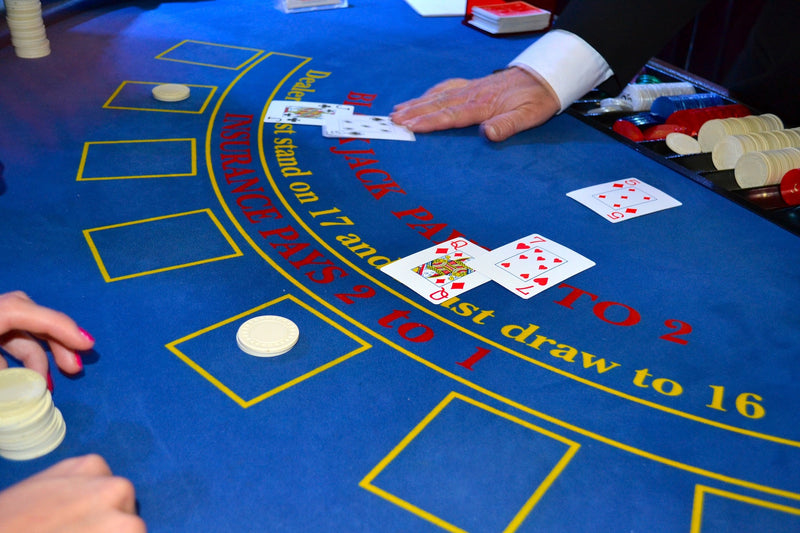
Given that most people are familiar with a standard deck of playing cards, Blackjack could be one of those famous card games most of us have experienced playing. The mechanics of the game are pretty straightforward, and anyone can start playing as soon as they learn the basic rules.
While the game seems the easiest to learn, some people say it is a game that involves skill. It goes beyond just merely learning how to play the game. It is, in fact, a multitude of strategies that you must learn by heart.
How to Play Blackjack
In the most basic sense, blackjack is a popular card game that uses the standard 52-card pack. While there is still a big dispute as to where it originally started, most researchers agree that it is somehow connected to French card games.
Blackjack is a game of mathematics with tricks that mostly involve numbers and strategies. Combining the two, you have a higher probability of winning.
So, do you need to learn the techniques? The experts have spoken. Yes, it is “crucial” that you learn these Blackjack strategies to increase your chances of winning.
On any given day, you face hundreds of options. But, in Blackjack, when the decisions you need to make are potentially life-altering (which means losing money, by the way) it gets much harder. And the only way you deal with those choices is to level up your game.
Here are some tips to help you make those tough decisions in Blackjack without batting an eye. But first, you have to learn the basics.
Game Basics
You and the other players do not compete with each other but with the dealer directly. So, the objective is to beat the dealer by getting a hand value as close to 21 as possible. That’s why this game is also known as Twenty One.
Each card has its corresponding value. Cards 2 to 10 are valued based on their actual numeric value. An ace, depending on the players, can either be 1 or 11. Face cards or those that are Jack, Queen, and King have a hand value of 10. Suits do not count.
The dealer loses if:
- The dealer’s hand value is over 21
- Your cards’ hand value is higher than that of the dealer’s
- On your first two cards, you have drawn a hand value of 21 and the dealer does not
Of course, you will lose if the dealer’s hand value is greater than yours at the end of the playing round or if your cards’ hand value is over 21.
While there are other players on the table, their hands do not have anything to do with the way you can win the game. It is basically between you and the dealer.
The round starts with the dealer facing five to seven positions on a blackjack table with a betting box on each. At the start of the round, each player places their bets in the betting box. Once all the bets have been placed, the dealer shuffles the card. In a clockwise rotation, the dealer gives each player two cards facing up. The dealer will also get two cards but one is facing down.
The player from the first base (positioned at the left of the dealer) first decides whether to hit (to ask for another card hoping to “hit” an exact 21 or at least get closer to it) or to stand (that is when you think your cards are good and you do not want to add another to avoid getting bust or going over 21).
If your first two cards consist of a ten-value and an ace, that means you got a Blackjack! You won! You get paid instantly usually two or three times your bet. That is if the dealer does not get a Blackjack. If he does, you will not win anything but you can still complete the round without having to lose your bet. This is known as a “push”.
Throughout the game, it will be a series of decisions that you have to make, not just a hit and a stand. You must learn these strategies to avoid losing.
The very basic strategy that you must learn when playing Blackjack is to know and understand each decision you should make.
- Surrender
- Split
- Double
- Stand or Hit
Understanding Soft and Hard Hands
Since an ace card could either be 1 or 11 depending on how you play your game, getting an ace means you have soft hands. You are at a great advantage because you can easily adjust your cards’ total hand value based on your situation.
Playing with hard hands means you don’t have an ace, which simply means you cannot be flexible with your cards (cannot be changed). So, if your cards have a total of 13, 14, 15, and 16, it is always best to make a stand than hitting to avoid the chances of getting a bust or losing against the dealer.
These are just a few of the many strategies you can use to increase your chances of winning. A combination of two or more strategies and mastering the way the game turns out on each round can put you at an advantage.
Practice Makes Perfect
Then again, all of these strategies won’t mean anything to you if you do not practice them. Unless you have someone to deal with you, it is pretty hard and frustrating to train yourself in this game. Here’s what you need to do:
- Download apps
You can try downloading apps like card counting to help you hone your skills in Blackjack. While there are tons of Blackjack games out there, choosing what works best for you can be a challenge.
Check the reviews. Read them. Most people do care and will put up a review that other people will find very useful.
- Buy plastic playing cards
It is important to keep on playing the game at home. Buy plastic playing cards and keep on practicing at home to help you hone your game. Check out the ones from Copag USA, made from the finest materials and the best-in-the-industry technology manufactured from Brazil.
As the adage goes, “Practice makes perfect”.
